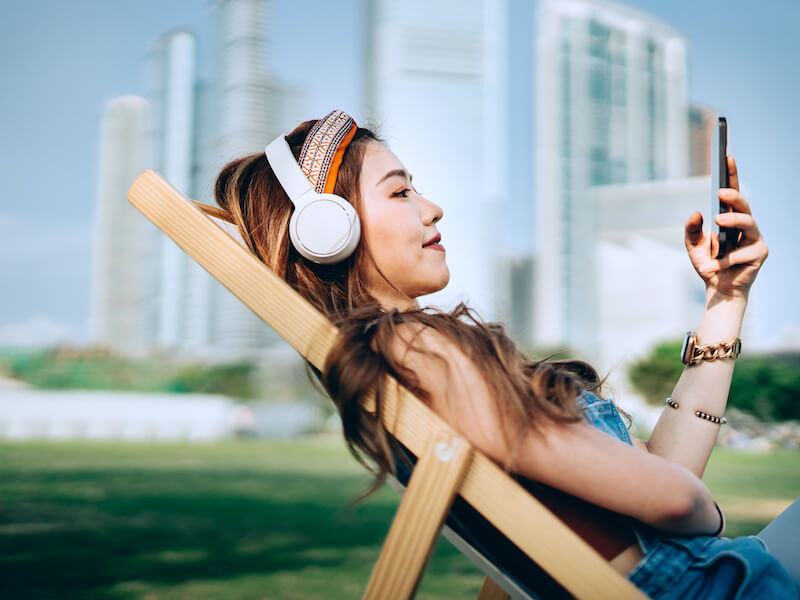
Music is an essential part of Aiden’s life. He listens to Spotify while at work, switches to Pandora when jogging, and he has a playlist for everything: gaming, cooking, gym time, and everything else. His entire life has a soundtrack and it’s playing on his headphones. But the exact thing that Aiden enjoys, the loud, immersive music, could be contributing to lasting harm to his hearing.
For your ears, there are safe ways to listen to music and dangerous ways to listen to music. But the more hazardous listening option is frequently the one most of us use.
How can listening to music cause hearing loss?
Your ability to hear can be damaged over time by exposure to loud noise. We’re accustomed to thinking of hearing loss as a problem associated with aging, but the latest research is showing that hearing loss isn’t an inherent part of getting older but is instead, the outcome of accumulated noise damage.
It also turns out that younger ears are particularly susceptible to noise-related damage (they’re still developing, after all). And yet, younger adults are more inclined to be dismissive of the long-term dangers of high volume. So there’s an epidemic of younger individuals with hearing loss thanks, in part, to high volume headphone use.
Can you enjoy music safely?
It’s obviously hazardous to listen to music at max volume. But merely turning the volume down is a less dangerous way to listen. The general recommendations for safe volumes are:
- For adults: No more than 40 hours of weekly listening on a device and keep the volume lower than 80dB.
- For teens and young children: 40 hours is still okay but reduce the volume to 75dB.
Forty hours every week translates into roughly five hours and forty minutes a day. Though that might seem like a long time, it can seem to pass rather quickly. But we’re taught to monitor time our entire lives so the majority of us are pretty good at it.
Keeping track of volume is a little less user-friendly. Volume isn’t measured in decibels on the majority of smart devices such as TVs, computers, and smartphones. Each device has its own arbitrary scale. It might be 1-100. But maybe it’s 1-16. You may not have any idea how close to max volume you are or even what max volume on your device is.
How can you listen to music while monitoring your volume?
It’s not very easy to know how loud 80 decibels is, but thankfully there are some non-intrusive ways to tell how loud the volume is. It’s even harder to understand the difference between 80 and 75dB.
So utilizing one of the many noise free monitoring apps is greatly recommended. Real-time readouts of the noise around you will be available from both iPhone and Android apps. That way you can track the dB level of your music in real-time and make alterations. Or, when listening to music, you can also adjust your settings in your smartphone which will efficiently tell you that your volume is too loud.
As loud as a garbage disposal
Your garbage disposal or dishwasher is typically about 80 decibels. That’s not too loud. Your ears will begin to take damage at volumes above this threshold so it’s an important observation.
So pay close attention and try to stay away from noise above this volume. If you do listen to some music above 80dB, don’t forget to limit your exposure. Maybe listen to your favorite song at full volume instead of the entire album.
Over time, loud listening will cause hearing problems. Hearing loss and tinnitus can be the outcome. The more you can be cognizant of when your ears are entering the danger zone, the more educated your decision-making will be. And safer listening will hopefully be part of those decisions.
Contact us if you still have questions about the safety of your ears.
